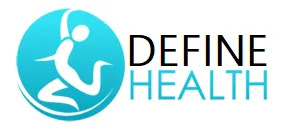What Causes Heartburn?
What Causes Heartburn?
Acid reflux, commonly called heartburn, may be connected with a number of health issues such as IBS, but have you ever wondered what causes heartburn (heart burn)? After all, heartburn isn’t the only symptom of acid reflux, so why is it the most frequent symptom associated with it?
Heartburn is the most common sign of acid reflux because it is one of the symptoms of this condition that can truly be felt by the sufferer. Heartburn occurs when gastric acid has remained in the lower esophagus for a prolonged period of time. The irritation the acid inflicts on the esophagus causes the sufferer to feel an uncomfortable, and often painful burning sensation behind the breastbone, which can rise to the level of the throat.
Heartburn occurs when the muscle valve between the esophagus and stomach, known as the lower esophageal sphincter (LES), fails to close while the stomach is digesting food. When the LES opens during digestion, acid can be refluxed into the esophagus and heartburn is often the end result. When the LES fails, this is often because it has become weakened. There are many causes that can weaken the LES. In fact many of these causes are the same factors that can make heartburn worse.
What can make heartburn worse? There are many dietary and lifestyle factors
that can cause heartburn flare-ups to be prolonged, frequent, or intense. The following are The most prevalent elements :
- Caffeine. Drinks or foods that contain caffeine including regular and decaffeinated coffee and tea, soda, energy drinks and chocolate.
- Fatty and spicy foods. Red meats, deep fried and processed foods, spicy foods such as chili and curry. These foods stay in the stomach longer and slow down digestion which places pressure on the LES.
- Tomatoes. Tomato and tomato based products including sauces and juice. Tomatoes relax the LES.
- Raw onion. Raw onion does not appear to cause acid reflux in those who do not have it, but it often makes heartburn worse in those who suffer from the condition, especially when eaten in high quantities.
- Citrus fruits citrus juices. Oranges, grapefruits, lemon, lime, etc. Citrus relaxes the LES.
- Peppermint. Mint candy, mint tea, or mint ice cream. Peppermint is beneficial for the digestive system, but it relaxes the LES.
- Milk. Milk is believed to help heartburn sufferers find relief from their symptoms because it can work as an instant antacid. However, relief is often only temporary, as the calcium and protein in milk stimulate the production of acid, which can make your heartburn return worse in as little as 30 minutes of ingesting milk.
- Alcohol. Wine, beer, liquors, spirits. Alcohol relaxes the LES and also increases acid production in the stomach.
- Tobacco. Smoking cigarettes, cigars or chewing tobacco weaken the LES and decrease saliva production. Saliva helps to neutralize stomach acid.
- Large meals. A large meal is any meal that leaves you to feeling ‘stuffed’ or ‘bloated’. Large meals can promote an increase in acid production, slow digestion, and place pressure on the LES.
- Eating within 2 – 3 hours before bed. Lying down directly after eating pushes the contents of the stomach against the LES. Furthermore, when you sleep, all of your muscles naturally relax including the LES, which is why acid reflux is often worse at nighttime.
- Strenuous exercising. Sit-ups, stomach crunches, etc. Exercises that are tough on the abdominal muscles stress the stomach and the LES. Furthermore, bending after eating can also make heartburn heart burn worse.
- Tight clothing. Tight pants, girdles, corsets, belts. Clothing that fits tightly around the abdomen squeezes the stomach and can force food up against the lower esophageal sphincter, forcing it to open.
- Excess weight. Being overweight or obese places stress on the stomach which then places stress on the LES causing it to weaken.
- Medication. Some medications can make heartburn worse including:
- Nonsteroidal anti-inflammatory drugs/NSAIDs (ibuprofen, aspirin, etc.)
- Anticholinergic drugs (antihistamines and urinary tract disorders)
-Calcium channel blockers (high blood pressure)
- Nitrates (angina)
- Beta-2 agonists (asthma)
- Tricyclic (antidepressants)
- Diazepam(seizures and anxiety disorders)
If you are taking any medication for another health condition, talk to your doctor to find out if your medication is making your heartburn (heart burn) worse.




